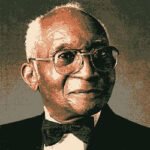To uncover the truth, we need to delve into the song’s creation. Allee Willis, the Grammy-winning songwriter who collaborated with Earth, Wind & Fire’s founder Maurice White and guitarist Al McKay, revealed the surprising answer before her passing in 2019: the 21st of September holds no profound significance whatsoever.
The Accidental Date in “September”
In a 2004 interview with NPR, Willis recounted the songwriting process, which spanned nearly four months. The quest for the perfect date was surprisingly pragmatic. “We went through all the dates,” she explained, “‘Do you remember the first, the second, the third, the fourth … ‘ and the one that just felt the best was the 21st.” It was purely phonetic preference that landed on “the 21st night of September,” not a hidden historical event or personal anecdote.
:max_bytes(150000):strip_icc():focal(884×235:886×237)/earth-wind-and-fire-092122-7dcbaee90863464bb0e8830fdff3906d.jpg)
Leon Morris/Redferns
This revelation often surprises fans who have constructed their own interpretations around the date, perhaps associating it with the end of summer or a personal milestone. However, Willis clarified, “I constantly have people coming up to me and they get so excited to know what the significance was. And there is no significance beyond it just sang better than any of the other dates. So … sorry!” The 21st of september song’s magic isn’t rooted in a specific event, but in its sonic appeal.
Decoding “Ba-dee-ya”: Embracing the Nonsense
The lyrical mystery of “September” extends beyond the date to its famously repeated phrase, “Ba-dee-ya.” These seemingly nonsensical syllables have baffled listeners for years, leading to countless misinterpretations and humorous lyrical alternatives. From “Ariel” to “Barbie Doll,” the “Ba-dee-ya” section is often playfully misheard.
Willis attributed these iconic sounds to Maurice White’s songwriting style. “The, kind of, go-to phrase that Maurice used in every song he wrote was ‘ba-dee-ya,'” she revealed. From the outset, the chorus took shape with White singing, “Ba-dee-ya, say, do you remember / Ba-dee-ya, dancing in September.”
Despite their immediate catchiness, Willis initially resisted the “Ba-dee-ya” lyrics. “I said, ‘We are going to change ‘ba-dee-ya’ to real words, right?'” she recalled, expressing her desire for more conventional lyrics. However, White remained firm, and eventually, Willis’s persistence wore down. In a moment of frustration during their final vocal session, she pressed White for an explanation: “What the f— does ‘ba-dee-ya’ mean?'”
Gems/Redferns/Getty
White’s response was both simple and profound: “Who the f— cares?” This seemingly dismissive answer became a pivotal lesson for Willis, shaping her future songwriting. She realized the paramount importance of groove and feeling in music. “I learned my greatest lesson ever in songwriting from him, which was never let the lyric get in the way of the groove,” Willis stated. She understood that the emotional resonance of music transcends literal meaning. As she further elaborated to American Songwriter, “[If the melody, beat and spirit are there then everyone will know — emotionally, they will know — what you’re saying]. Lyrics can be clunky sometimes because someone is trying to make too much sense or fit in a four-syllable word when a two-syllable one feels better.”
The Enduring Appeal of “September”
Ultimately, the beauty of the 21st of september song and “September” lies in its ability to evoke pure joy and celebration. The lyrics may not carry a deeply coded message, but the song’s infectious rhythm and uplifting spirit are universally understood. “I think the song’s just eternally uplifting,” Willis reflected. “It’s impossible to be depressed when you hear it.” This timeless quality is why “September” continues to fill dance floors and playlists, making every September 21st a global celebration of music and good vibes, regardless of the date’s original intention.

